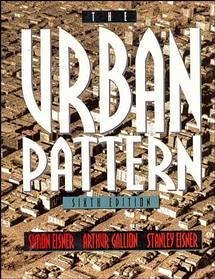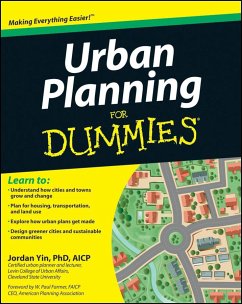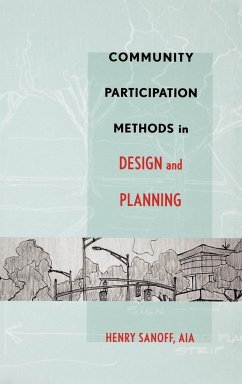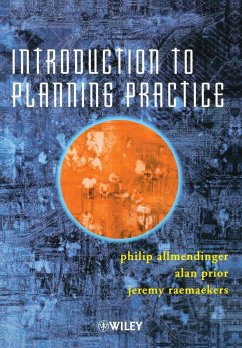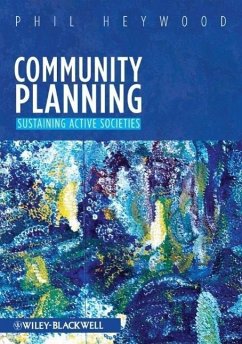
Geo-Space Urban Design
Versandkostenfrei!
Versandfertig in über 4 Wochen
117,99 €
inkl. MwSt.

PAYBACK Punkte
59 °P sammeln!
Visit any large metropolitan area in the world, and you'll feel the urgent need for innovative solutions to the many problems that face the modern urban center. Geo-Space Urban Design offers a revolutionary proposal that will lead future urban growth quite literally in a different direction--down. Gideon Golany and Toshio Ojima clearly demonstrate that subsurface urban expansion is not only practical and feasible, but also that it can reverse many of the negative effects normally associated with urban expansion. They present a comprehensive and systematic plan for developing underground spaces...
Visit any large metropolitan area in the world, and you'll feel the urgent need for innovative solutions to the many problems that face the modern urban center. Geo-Space Urban Design offers a revolutionary proposal that will lead future urban growth quite literally in a different direction--down. Gideon Golany and Toshio Ojima clearly demonstrate that subsurface urban expansion is not only practical and feasible, but also that it can reverse many of the negative effects normally associated with urban expansion. They present a comprehensive and systematic plan for developing underground spaces for transportation, delivery systems, infrastructure, residences, shopping and commercial spaces, and social and cultural activities. The authors focus on integrating geo-space with existing above-ground structures and offer well-illustrated examples of specific design theories and methods. They also anticipate a variety of contingent issues, such as land ownership, legal rights, and psychological adjustment to underground living and working. Three case studies of Japanese projects that use underground space for shopping, transportation, and infrastructure explore the entire spectrum of issues surrounding the design, construction, and ongoing operation of the facility, including form, function, and efficiency; health, safety, and comfort; legal issues; and special management and security considerations. Geo-space projects in Montreal and Paris are also examined. Geo-Space Urban Design appeals to a broad range of professionals, all of whom have important roles to play in the creation and operation of the cities of the future. For urban designers, architects, and civil and architectural engineers, this book offers both an eye-opening vision and a challenge to create viable spaces that will revolutionize urban life; landscape architects, geographers, and environmentalists will find opportunities to redefine the relationship between society and the natural world; and psychologists, social scientists, and government officials will discover new levels of human adaptability, interaction, and cooperation. In this revolutionary book, two leading figures explain how geo-space design and construction will enable urban planners to cope with the most difficult challenges posed by the continued expansion of metropolitan areas, including * Land preservation--conserving precious agricultural land in the face of rapid urban expansion * High urban land prices--making economical use of limited space in urban centers with soaring property values * Efficient urban scale--shrinking overextended and inefficient utility networks * Response to stressful climate--reducing energy consumption in regions subject to extremes of hot or cold weather The authors explore every facet of geo-space and point out the challenges and opportunities these projects will hold for urban designers, architects, civil engineers, architectural engineers, landscape architects, geographers, environmentalists, psychologists, social scientists, and government officials.






